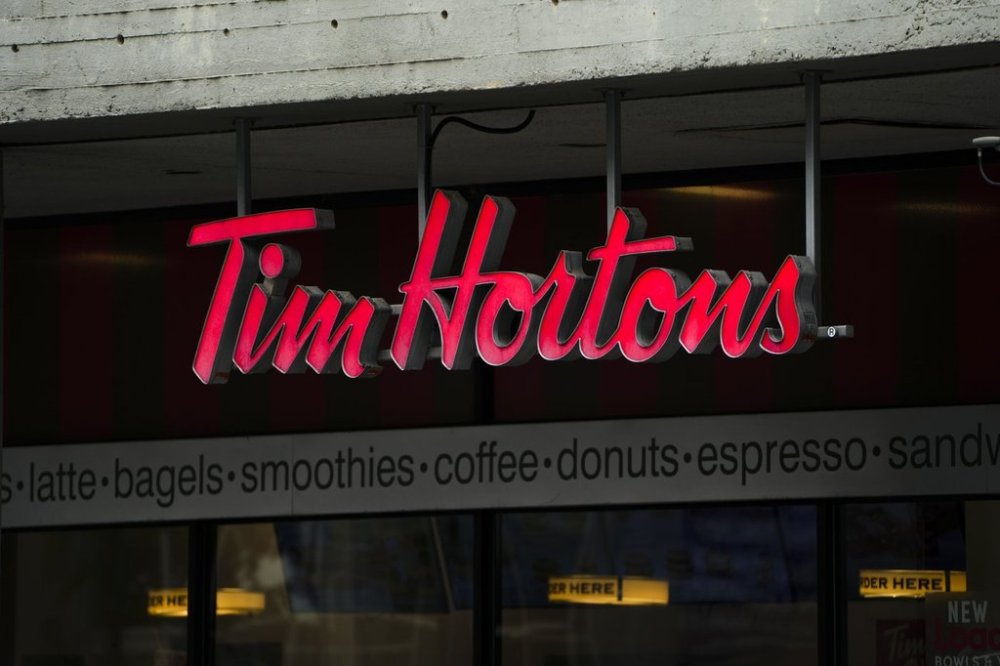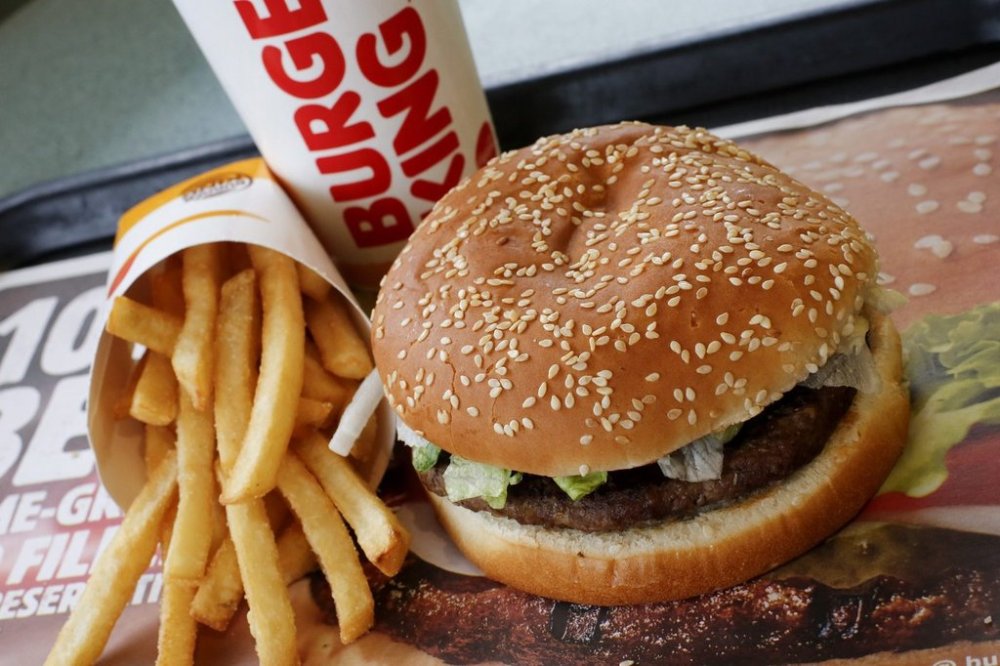Tim Hortons remains star of RBI earnings as rising beef prices challenge Burger King
Advertisement
Read this article for free:
or
Already have an account? Log in here »
To continue reading, please subscribe:
Monthly Digital Subscription
$0 for the first 4 weeks*
- Enjoy unlimited reading on winnipegfreepress.com
- Read the E-Edition, our digital replica newspaper
- Access News Break, our award-winning app
- Play interactive puzzles
*No charge for 4 weeks then price increases to the regular rate of $19.00 plus GST every four weeks. Offer available to new and qualified returning subscribers only. Cancel any time.
Monthly Digital Subscription
$4.75/week*
- Enjoy unlimited reading on winnipegfreepress.com
- Read the E-Edition, our digital replica newspaper
- Access News Break, our award-winning app
- Play interactive puzzles
*Billed as $19 plus GST every four weeks. Cancel any time.
To continue reading, please subscribe:
Add Free Press access to your Brandon Sun subscription for only an additional
$1 for the first 4 weeks*
*Your next subscription payment will increase by $1.00 and you will be charged $16.99 plus GST for four weeks. After four weeks, your payment will increase to $23.99 plus GST every four weeks.
Read unlimited articles for free today:
or
Already have an account? Log in here »
TORONTO – Burger King’s U.S. hamburger sales have been coming with a side of pricing pressure lately.
The fast-food chain’s parent company Restaurant Brands International Inc. said Thursday that higher beef costs in its most recent quarter threatened to put the squeeze on margins.
“Beef prices have been elevated and that does have some impact on our franchisees profitability,” RBI chief executive Joshua Kobza told analysts on a call.

Statistics Canada’s latest data shows the price of fresh or frozen beef rose 14 per cent over the last year. The agency has attributed some of the rise to a shortage in cattle.
In the U.S., one of Burger King’s biggest markets, the Bureau of Labor Statistics said uncooked ground beef costs were up 12.9 per cent over the same period, while beef steaks increased 16.6 per cent.
The increases pose a significant challenge to fast-food companies because many of their signature products — burgers, tacos and bowls — feature beef and for most, removing the items is unthinkable. Chains could cope by hiking prices, but an increase will not go unnoticed by customers who are increasingly seeking value and might choose to dine at home or elsewhere.
RBI chief financial officer Sami Siddiqui said he expects the increase in beef costs Burger King has been experiencing to be temporary because it is largely tied to the cyclical nature of U.S. herd rebuilding.
“We’re optimistic prices will normalize over time. In fact, you’ve already seen cattle futures come down in the last week or so, and we continue to monitor movements in that market,” he said on the same call as Kobza.
While Burger King is RBI’s banner most exposed to beef increases, its other chains are not completely unscathed.
Firehouse Subs and Tim Hortons both sell sandwiches with roast beef though neither have as much of the meat on their menu as Burger King.
“In the grand scheme of things, it doesn’t really have a meaningful impact on us,” Tims president Axel Schwan said in an interview.
His remarks came shortly after RBI revealed its third-quarter net income attributable to common shareholders amounted to US$315 million or 96 cents US per diluted share
The result for the quarter ended Sept. 30 compared with a profit of US$252 million or 79 cents US in the same period last year.
Revenue for the company, which keeps its books in U.S. dollars, totalled US$2.45 billion, up from US$2.29 billion a year ago.
On an adjusted basis, RBI says it earned US$1.03 per diluted share in its latest quarter, up from 93 cents US per diluted share in the same quarter last year.

The star of RBI’s results was Tim Hortons. The café chain represents about 44 per cent of RBI’s operating profit.
It notched its eighteenth consecutive quarter of positive same-store sales and saw a 6.5 per cent jump in sales of breakfast food, which includes the recent addition of scrambled eggs.
“Overall, the goal is really to keep our heads down,” Schwan said.
Other areas of the broader RBI business, like chicken joint Popeyes, are not so fortunate.
“We’re not satisfied with our performance and know there’s more work to do,” Kobza said, when discussing the chain.
He pointed out its recently launched chicken dippers, which performed well with new customers but didn’t drive many repeat visits. An August revamp to its chicken wings appeased customers but it was “modestly incremental,” he said.
“It’s clear that we need to do a better job focusing on our core offerings, especially our bone-in chicken, tenders and sandwich platforms, and we need to deliver consistent value for everyday guests.”
This report by The Canadian Press was first published Oct. 30, 2025.
Companies in this story: (TSX:QSR)

